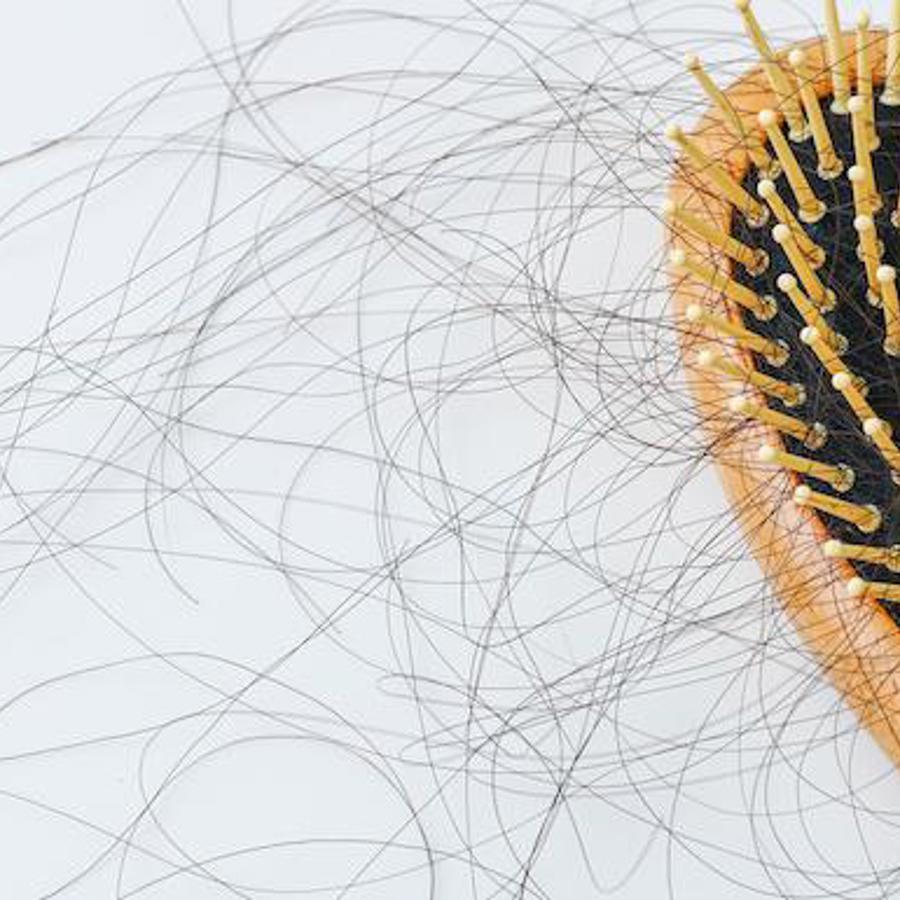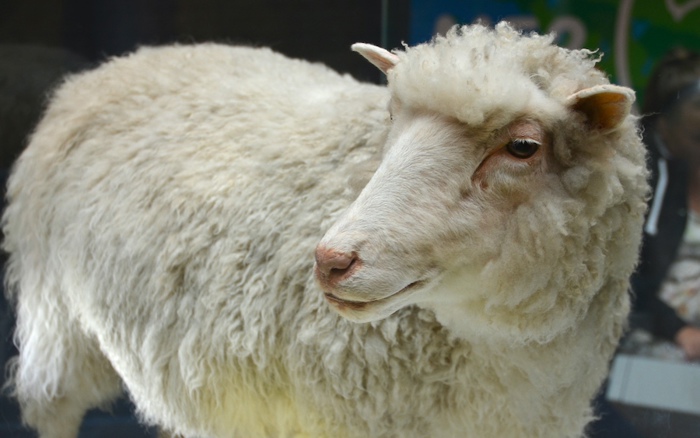
Can you use genes from your hair to clone yourself?
July 6, 2005

- Related Topics:
- Cloning,
- Futuristic science,
- Bioethics
A high school student from North Carolina asks:
"Can you use genes from your hair to clone yourself and if so, how?"
Cloning has certainly made headlines recently, especially human cloning. No wonder you are curious about the possibilities!
Well, you might be able to clone yourself from your hair, but it wouldn't be easy. To make a copy of yourself, you need two things: DNA and an unfertilized egg.
First off, the DNA has to come packaged in the nucleus of a cell.
Individual genes make up only a small portion of your DNA. It turns out that the rest of your DNA is also important, so using only genes for cloning won't work. You really need a full, intact set of DNA. So can you get a nucleus with intact DNA from hair?
Not from the hair shaft, because that's made up of dead cells. When a cell dies, its DNA quickly breaks into pieces. That's why DNA from hair may be in good enough shape to identify a person (for example at a crime scene), but you can't clone somebody with it.
But the roots of your hair are a different story. They contain living cells where you could find nuclei with undamaged DNA. So, if you pulled out your hair by the root, you might be in business. (Although, when animals are cloned, the DNA does not usually come from a hair cell).
Imagine you've got some of these nuclei. You now need to replace the nucleus from an unfertilized egg with one from your hair root and start growing the egg in a dish. Then you put it into a foster mother. Nine months later, you'll be cloned!

Well, if you're lucky. One big problem in cloning is that cells from an adult have become specialized, like cells in hair roots, muscle, or bone. Specialized cells often have trouble remembering how to turn into the many other cell types of a whole organism. But that's exactly what you're asking the nucleus from your hair root to do.
Getting the DNA unspecialized again isn't an exact science yet. Scientists try to fool the DNA by using electricity or chemicals, but it only works some of the time. This is one of the big reasons most mammalian clones don't survive. And of those that are alive at birth, many have defects.
So besides the technical difficulties of cloning, you are also facing huge ethical concerns. What would you do with all the living clones that have defects? How would you get the large number of unfertilized eggs you'd need to clone yourself? Not to mention all the foster mothers!
So, in theory, it may be possible to clone a person from a hair root. But there are technical hurdles you'd need to tackle, and important ethical questions to ponder before you decide to clone yourself.

Author: Simone Marticke
When this answer was published in 2005, Simone was a Ph.D. candidate in the Department of Genetics, studying global mechanisms of transcription in mammalian cells in Rick Myers’ laboratory. Simone wrote this answer while participating in the Stanford at The Tech program.
 Skip Navigation
Skip Navigation
